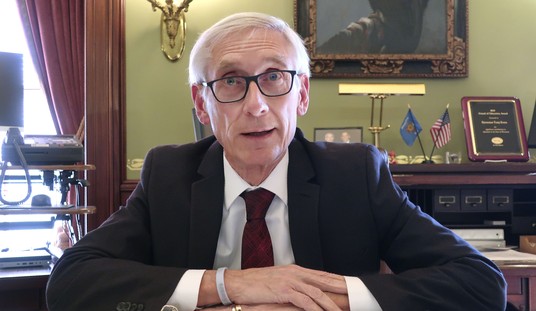Undeterred by the failure of the last injection of taxpayer dollars into a bloated banking system, our financial crusaders in DC are scratching their heads over the best way to flush another few hundred billion away. The latest scheme involves the creation of a “bad bank” that would purchase the so-called “toxic” mortgage-related assets from the troubled institutions.

The theory is that when the government’s “bad bank” lifts these toxic assets off their books, the commercial banks will then be able to lend out the money that taxpayers already gave to them during the last bailout.
Every taxpayer who plans on staying in the United States for the next few years should be very concerned when the government purposely overpays for assets, and even creates something with the word “bad” in its title to house them. That’s like the Department of Agriculture buying wheat to store in a “bad silo.” Would you feel good about that wheat? Well you shouldn’t feel good about these mortgage-backed securities that are about to be dumped on your shoulders, either.
The truly insidious aspect to government bailouts is that they give the politicians a plausible reason to micromanage these firms. It would be bad enough if the politicians simply took a few hundred billion from the taxpayers and handed it over to rich bankers who made risky bets during the housing boom. The taxpayers would be out $700 billion, while the bankers would be up $700 billion. Certainly not fair, but it wouldn’t be the end of the world.
But the government gave that original TARP money to the banks with strings attached. Now, President Obama can very credibly tell America’s corporations how much they can pay their executives, if they want to take government bailout money.
The most ironic thing about all of this is that the conditions set forth by Obama are not onerous in the least! For one thing, doesn’t $500,000 seem like a lot of money to be making, when you just ran your company into the ground? Does that really sound like President Obama just sent those naughty executives to the time-out corner?
Recommended
Yet that’s not even the actual limit. Corporations can still pay their executives more than $500,000 in compensation, even if the corporations receive government bailouts. They can give stock options to their top execs, and that’s fine with the government. They just can’t write a paycheck for more than $500,000 per year. And remember, this is the salary cap being put on people who squandered so much money that they claim they need emergency taxpayer subsidies to prevent imminent collapse.
Incidentally, I am a staunch supporter of the free market. I have publicly defended the use of “golden parachutes,” in which corporations agree to let a CEO earn big bucks even when he gets fired for bad performance. The reason is that you don’t want the CEO job to be terrifying to the applicant.
Think of it this way: If you are on a board directing a company, you want to pick a really aggressive, no-nonsense, very intelligent person to run it. But at the same time, you want someone who realizes he or she can’t control everything, and that the best-laid plans might go awry. You want someone who realizes his own limits. You don’t want to hire someone who thinks he can’t possibly fail.
And so that type of candidate, who realizes he or she might get let go in a few years, is not going to relish a compensation package as CEO where the payout is $20 million a year if things go well, but only $100,000 and a kick in the pants if things go poorly.
Ironically, if the CEO’s incentives were the lopsided arrangement I just discussed, then the CEO would adopt an extremely narrow, short-sighted mentality. Only when corporations offer a more balanced compensation package—where the CEO does well even if the company tanks—will he have the right incentives as a steward of the assets. The Board of Directors never wants the CEO to feel trapped, and that he needs to turn the numbers around on the books in three months or else his pay drops by $19 million.
Nothing good will come out of continued taxpayer subsidies to big businesses. It makes the average citizen poorer and brings politics into the marketplace. The politicians in DC need to stop doling out tax dollars to people who aren’t good with money. Rather than telling corporations how to run their affairs, the politicians should butt out and let competition handle it.
























Join the conversation as a VIP Member